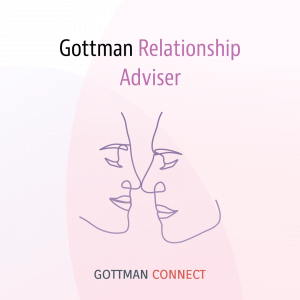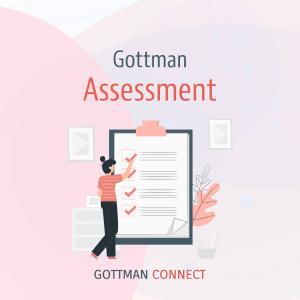When Sam gets home from work, their partner Charlie asks, “How was your day, dear?” The conversation goes like this.
A stressful conversation
Sam: “At my weekly meeting my manager challenged my knowledge of our products and told the CEO that I am incompetent. He’s such a jerk.”
Charlie: “There you go again. Overacting and blaming your manager. When I met him, he seemed very logical and reasonable. You’re probably being insensitive to his worries about your department.” (siding with the enemy)
Sam: “He has it out for me.”
Charlie: “And there’s your paranoia. You really need to get a handle on that.” (criticism)
Sam: “Forget I ever said anything.”
Do you think Sam feels loved at this moment?
Probably not.
Instead of providing a safe haven to be heard, Charlie adds to the stress.
The stress-reducing conversation
Learning to cope with external pressure is crucial to a marriage’s long-term health, according to research by Neil Jacobson.
A simple, effective way for couples to earn deposits in their emotional bank account is to reunite at the end of the day and talk about how it went. We call this the “How was your day, dear?” conversation, or more formally, the Stress-Reducing Conversation.
Like Sam and Charlie, many couples have the “How was your day, dear?” conversation but the talk does not help either partner relax. Instead, it escalates the stress and tension between them because they end up not feeling heard.
If this sounds like you and your partner, changing your approach to these end-of-the-day talks can ensure that they help both of you unwind.
Learn more about the building blocks of a healthy relationship
The 4 agreements of love
Before you start your end-of-the-day discussion, I’d recommend making some agreements. Agreements are what I use with my clients to bring their unspoken expectations into view.
Agreement #1: Agree on timing
Some individuals want to connect the moment they walk into the door. Others need to decompress on their own before they’re ready to interact. When this expectation goes unspoken it can create tension and leave both partners feeling missed by each other. Agree on a time that will meet both of your needs. This can be at 7 pm every night or before bed.
Agreement #2: Dedicate your presence for 20-30 minutes
Some couples struggle because they don’t spend enough time in the presence of each other to allow love to be cultivated. Take time to truly connect during this conversation.
Agreement #3: Don’t discuss your marriage
This talk gives you and your partner the space to discuss whatever is on your mind outside your marriage. It is not the time to bring up conflicts between you. Instead, it’s a chance to truly support each other in other areas of your life.
This conversation is a form of active listening where you respond to each other’s venting with empathy and without judgement. Since the issues have nothing to do with the marriage, it’s much easier to express support and understanding of your partner’s worries and stresses.
Agreement #4: All emotions are welcome
This conversation is an opportunity to unload about irritants or issues, both big and small. If your partner shares sadness, fear, or anger and it feels uncomfortable, it may be time to explore why. Often this discomfort is rooted in childhood restrictions against expressing “negative” emotions. If this is the case, check out “Coping with Your Partner’s Sadness, Fear, and Anger” in “The Seven Principles That Make Marriage Work.”
Allow this space to be a place of celebration too. If you have a victory at work or as a parent, mention that. Beyond sharing frustrations, a relationship is about sharing and relishing in the victories of life together. That’s what makes it meaningful.
7 steps to an effective end-of-day conversation
Below are detailed instructions for using active listening during the stress-reducing and intimacy-building conversation.
1. Take turns. Let each partner be the complainer for fifteen minutes.
2. Show compassion. It’s very easy to let your mind wander, but losing yourself will make your partner feel like you’ve lost touch with them. Stay focused on them. Ask questions to understand. Make eye contact.
3. Don’t provide unsolicited solutions. It’s natural to want to fix problems or make your partner feel better when they express pain. Often partners just want an ear to listen and a shoulder to cry on. Unless your partner has asked for help, don’t try to fix the problem, change how they feel, or rescue them. Just be present with them.
In heterosexual couples, men get caught up in this trap more frequently than women, but it is not the man’s responsibility to rescue his partner. Often trying to “save her” backfires. In the Love Lab, Dr. John Gottman noticed that when a wife shares her troubles, she reacts negatively to her husband offering advice right away. What she wants is to be heard and understood.
It’s not that problem-solving doesn’t have its place. It is important, but as psychologist Haim Ginott says, “Understanding must precede advice.” It’s only when your partner feels fully understood that they will be receptive to suggestions.
4. Express your understanding and validate emotions. Let your spouse know that you understand what they are saying. Here’s a list of phrases I have my clients use.
- “Hearing that makes perfect sense why you’re upset.”
- “That sounds terrible.”
- “I totally agree with how you see it.”
- “I’d be stressed too.”
- “That would have hurt my feelings too.”
5. Take your partner’s side. Express support of your partner’s view even if you feel their perspective is unreasonable. If you back the opposition, your spouse will be resentful. When your partner reaches out for emotional support (rather than advice), your role is not to cast judgment or to tell them what to do. It’s your job to express empathy.
6. Adopt a “We against others” attitude. If your partner is feeling alone while facing difficulty, express that you are there with them and you two are in this together.
7. Be affectionate. Touch is one of the most expressive ways you can love your partner. As they talk, hold them, put an arm around their shoulder, or simply hold hands.
Here is how the conversation changed after these instructions were given to Sam and Charlie.
Charlie: “How was your day, dear?”
Sam: “At my weekly meeting, my manager challenged my knowledge of our products and told the CEO that I am incompetent. He’s such a jerk.”
Charlie: “What a jerk! So rude.” (us against others) “What did you say?” (expressing genuine interest)
Sam: “I told him I feel like he is out to get me and it’s not fair. I am the number one sales associate on the floor.”
Charlie: “I completely understand why you feel like that. I’m sorry he’s doing this to you.” (expressing affection) “I hope his bosses know about this.” (us against others)
Sam: “I agree, but I think he’s doing it to himself. The CEO doesn’t appreciate him saying everyone is incompetent but him. It’s probably best to leave it alone.”
Charlie: “I’m glad the CEO is aware of that. It’s not good and will backfire sooner or later.”
Sam: “I’m sure it will. Enough of that. I feel like pizza, cuddles, and a movie tonight. You in?”
Charlie: “Of course, love.”
If you have this type of conversation every day, it will benefit your marriage. You’ll come away with the feeling that your partner is on your side. That’s one of the foundations of a long-lasting friendship.
How can you know you’re in a happy relationship that’s both good for your health and everyone around you? Can such a thing be measured? It can! The Gottman Relationship Adviser, the world’s first complete relationship wellness tool for couples, takes the guesswork out of improving your relationship. Measure your relationship health with a research-based self-assessment, then receive a tailored digital relationship plan proven to heal and strengthen your connection.
For an in-depth analysis of your relationship health check out the Gottman Assessment, a virtual relationship evaluation tool for couples.
Take this free relationship quiz and find out how well you know your partner.
The Marriage Minute is an email newsletter from The Gottman Institute that will improve your marriage in 60 seconds or less. More than 40 years of research with thousands of couples showed one simple fact: small things often can create big changes over time. Got a minute? Sign up below.












